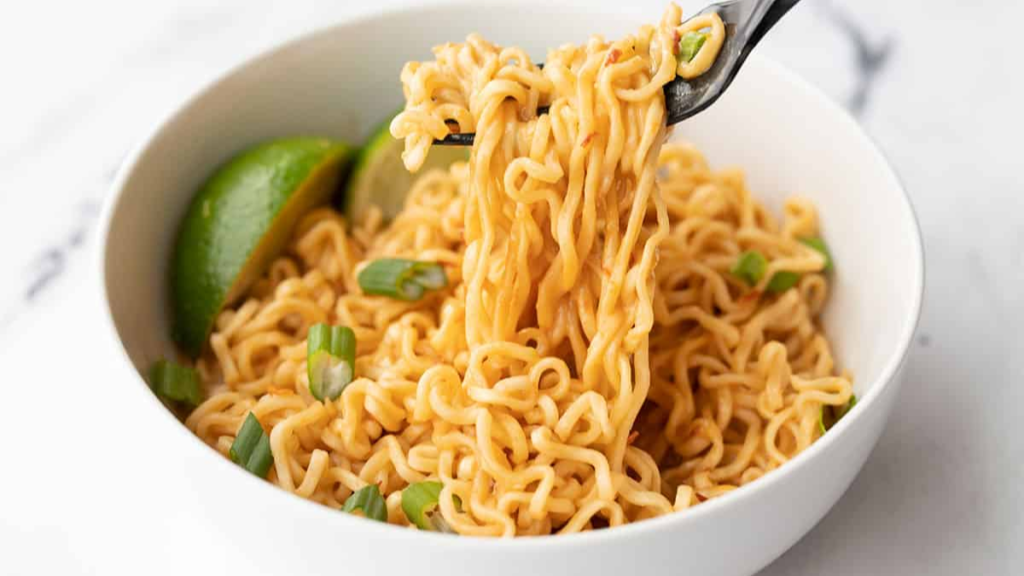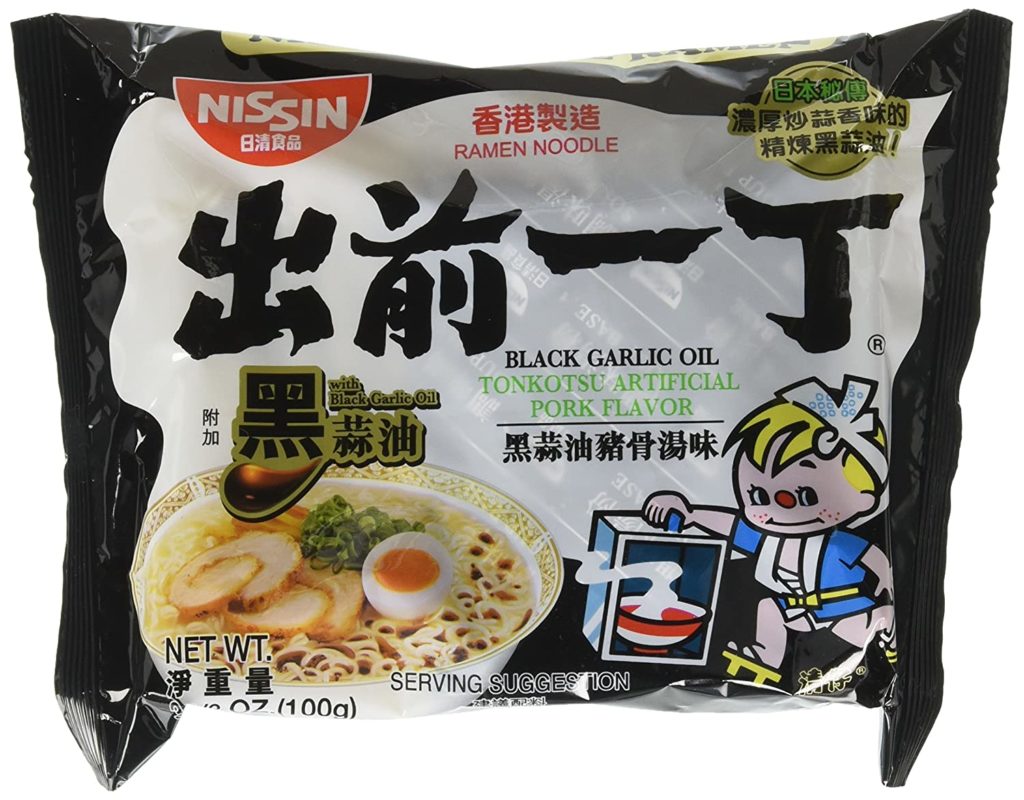In many Asian countries, noodles are a staple cuisine. Instant noodles are a well-known international dish, and their consumption is high. Instant noodles are famous for their nutritional value, taste, safety, convenience, low cost, and long shelf life. Noodles are made from unleavened dough that has been stretched, rolled fat, or extruded into various shapes. It is created using wheat flour, water, starch, salt or kansui, and other substances that enhance the flavor and texture of noodled that have been partially cooked by steaming and then cooked or dehydrated further by deep-frying. Precooked or dried noodles fused with oil and marketed with a seasoning package are instant noodles.
As early as 5000 BC, noodles came to China and spread to other Asian countries such as Japan, Korea, Thailand, and Malaysia. Today it is one of the fastest-growing sectors globally, having a compound annual growth rate of 4%. China is the leading country in the consumption of noodles, followed by Indonesia, Vietnam, and Japan worldwide.
Instant Noodles Nutrition Facts
What Are Instant Noodles?
Instant noodles, often known as instant ramen, are precooked and dried noodles that come in a block with flavoring powder and seasoning oil. The flavor is generally in a separate package, while the seasoning in cup noodles is frequently loose in the cup. Some quick noodle products come in sealed packages that can be reheated or eaten right out of the packet.
Dry noodle blocks are meant to be cooked or soaked in boiling water before eating, but they can also be eaten raw. Wheat flour, palm oil, and salt are the most common ingredients in dried noodles. Salt, monosodium glutamate, spice, and sugar are common constituents in flavoring powder. Flash frying cooked noodles first made the dried noodle block, and this method is still prevalent in Asian countries but air-dried noodle blocks are more prevalent in Western countries.
Are Instant Noodles Healthy?
Here are some health benefits of instant noodles:
The Nutritional Content
Wheat flour, salt, and water are the main ingredients in instant noodles, and other micronutrients may range depending on the instant noodles used. The main nutritional content of most quick noodles, on the other hand, is low in calories, fiber, protein, vitamins, and minerals. They do, however, have increased fat, carbohydrate, and sodium levels.
May Provide Important Micronutrients
Despite being poor in some nutrients such as fiber and protein, Instant noodles include a variety of micronutrients such as iron, manganese, folate, and B vitamins. Some quick noodles are additionally enriched with vitamins and minerals. In Indonesia, almost half of instant noodles, including iron, are enriched with vitamins and minerals. According to one study, anemia, a disorder caused by iron deficiency, can be reduced by drinking iron-fortified milk and noodles.
Furthermore, some quick noodles are prepared with fortified wheat flour, which has increased micronutrient intake without affecting the flavor or texture of the finished product. According to research, eating quick noodles has also been linked to increasing the intake of some micronutrients. Those who ate instant noodles had a 31 percent higher thiamine intake and a 16 percent higher riboflavin intake than those who did not eat fast noodles.
Good For Weight Loss
Even though particular quick noodles are low in calories per serving, they are low in dietary fiber and proteins necessary for weight loss. However, if you diet correctly with the aid of a nutritionist, you can lose weight while eating noodles or ramen.
High In Sodium
This is a significant health concern associated with the intake of instant noodles. The sodium level of a typical noodle lunch is around 1400, mThat’st’s quite near the sodium consumption that should be consumed daily (2300 mg). What may high sodium levels in noodles cause? It has the potential to increase the risk of hypertension and renal failure. Salt-sensitive people are particularly vulnerable.
They Contain MSG
As I previously stated, most noodles include a common component known as monosodium glutamate (MSGIt’st’s a flavoring age that’s added to processed foods. MSG is considered safe to eat by the FDA. However, MSG use has been associated with weight gain, nausea, elevated blood pressure, migraines, and harmful effects on brain function in some studies. According to some research, these symptoms may not occur if they are ingested in moderation. However, certain people are sensitive to MSG, the MSG symptom complex. If you have it, you should avoid MSG-containing meals. After eating noodles, people with MSG symptom complex frequently experience headaches, numbness, and nausea.
Nissin Demae Black Garlic Oil Instant Ramen Noodles
Can I Eat Instant Noodles Every Day?
So, you’re ready to hear what instant noodles can do to your health; here is a list of problems they can cause if you eat them every day :
The highly processed noodles load your digestive system, requiring it to break them down for hours. If you digest it too rapidly, it can mess with your blood sugar levels and insulin release. Because harmful chemicals and preservatives are maintained in the body for a long time due to delayed digestion, toxic chemicals and preservatives are often over-exposed to Butylated hydroxyanisole (BHA) and t-butyl hydroquinone (TBHQ).
Both TBHQ and BHA are carcinogenic and are used in products to keep them useable for longer (so we can have them stocked up on our shelves for months at a time). This means that if consumed or exposed to them over an extended period, they can cause cancer and asthma, anxiety, and diarrhea.
Are Instant Noodles High In Salt?
They Are High In salt. We’re all aware of the adverse effects of too much salt on our overall health. Few are aware of the actual harm to our bodies. The salt content of instant noodles is high. High dietary salt consumption was identified as a significant cause of high fatality rates in 23 case studies published in the American Journal of Hypertension in 2014. Excess sodium can cause excessive blood pressure and, as a result, heart disease (which is already a re-occurring health problem linked to every product found in these instant noodles).
How To Make Instant Noodles Healthy?
Are Instant Noddles Increased Risk Of Heart Disease?
If you’re on a budget and instant noodles are your favorite snack or treat to consume a few times a week, you may want to pay attention. In a study, it was found that women who consumed more instant noodles had a significantly greater risk of metabolic syndrome. Regardless of overall diet or exercise habits. Those who eat instant noodles more than twice a week are 68% more likely to have metabolic syndrome.
Those who aren’t sure what metabolic syndrome is. It is a group of symptoms such as central obesity, elevated blood pressure, and low HDL cholesterol levels. It increases someone’s chances of contracting heart disease, diabetes, or stroke. So why does this occur? Mainly because deep-frying is a step in producing most instant noodles that we consume. As we know, deep-fried anything is terrible for us. With the lack of nutrition and high saturated fats, the overall production process of these products does not help.
Conclusion
Including instant noodles in moderation is unlikely to have any detrimental health consequences. They are, however, lacking in nutrients, don’t make them a regular part of your diet. Furthermore, excessive drinking is connected to a poor diet and a higher risk of metabolic syndrome. Limit your intake, choose a healthy variety, and include some veggies and a protein sour. It’s OK to indulge in instant noodles now and again if you eat a healthy, well-balanced diet.





